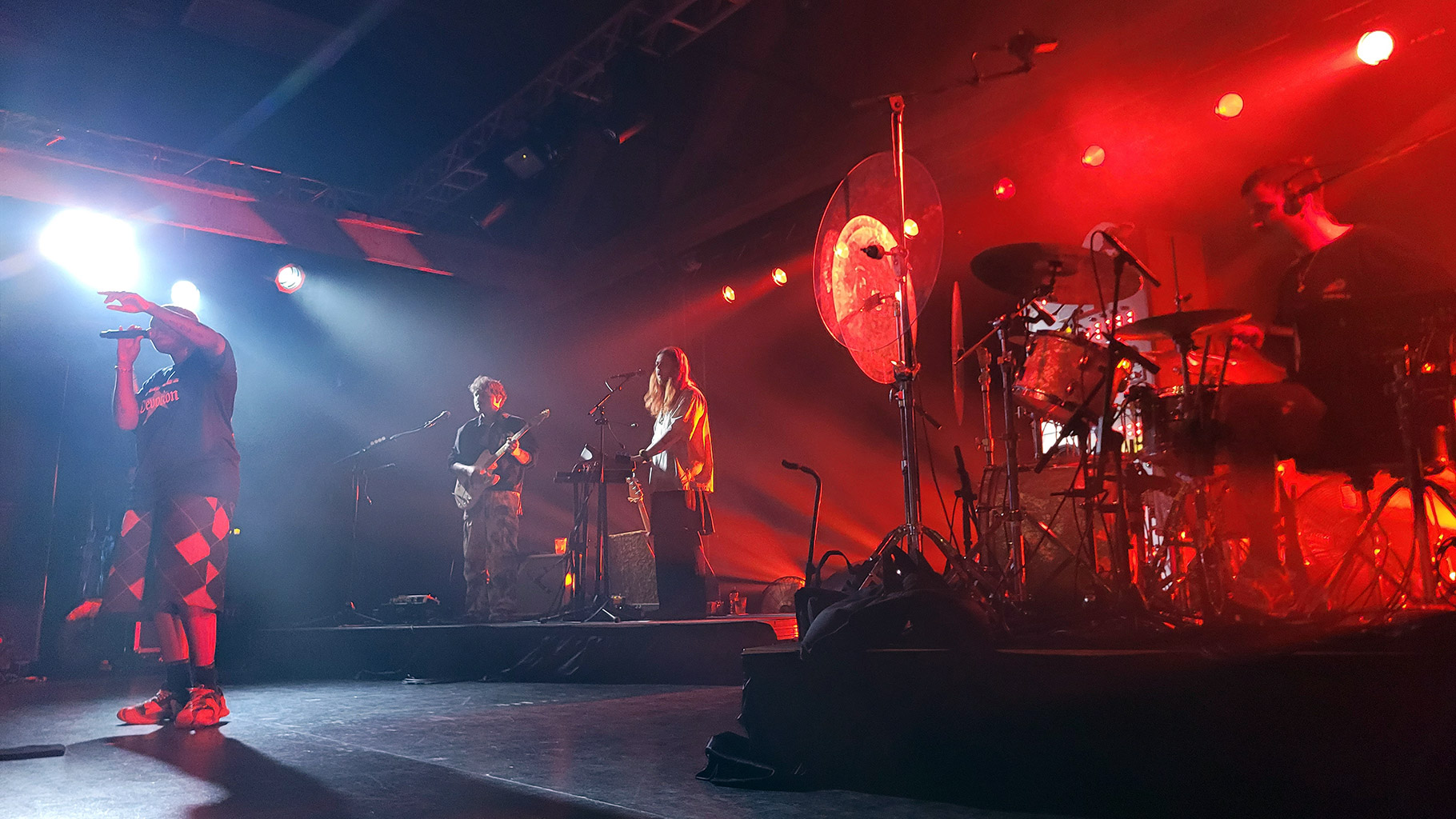Austra’s two sold out shows in Berlin are expressive of the band’s massive appeal in a city that thrives upon innovative music programming, anachronisms of the 1980s, and advocation for LGBT acceptance. Touring behind the sophomore album Olympia, an effort that features all of the aforementioned three, Katie Stelmanis and company delivered a set of darkly emotional synthpop that did not disappoint either night.
Classically voice-trained as a child, with a partiality toward gloomy themes, Canadian Katie Stelmanis’ laptop dabbling resulted in Austra’s 2011 debut Feel It Break, which achieved remarkable success. Now on Olympia, Stelmanis has not only dropped the bleak moods of the first album, but discarded the backing tracks in favor of actual instrumentation rather than computer-driven guidance. In doing, so the band now displays a more human presence, as Stelmanis has relinquished more freedom to the rest of the band to apply musical coloration to her robust voice.
October 28th, 2013 @ Heimathafen Neukölln in Berlin, Germany
Night one in Berlin saw the band taking the stage as a quartet, without backup singers Sari and Romy Lightman, who joined the band on tour in the past. While the duo still appears on Olympia, programming their parts has allowed for more of a stage presence from Stelmanis, when her nimble fingers aren’t moving over the keys. Their set began with the opening track “What We Done”, delivered in an even more suspenseful building intro than the album version. And when the calming waves of bass subsists over Stelmanis’ dainty chills and fluttering intonation, the song takes a danceable flavor of buoyant high hat and a jovial crescendo of synths.
After an extended silence between songs, Stelmanis went into their popular single “Lose It”, starting the first verse in an anxious a capella before the band joined her with a reworked live version of the song. That night, the levels at the soundboard were set for maximum priority of Stelmanis’ range, with “Lose It” being the breathtaking centerpiece. “The Villian” and “Beat and the Pulse” were also included as entries from their back catalog, emitting the looming arpeggiation the band became known for. “The Choke” was played by an initiation of fragmented washes of keys from the song’s hook, backed by syncopated lighting cues.
Austra has clearly taken a brighter path, which is easily noticeable by the stark openness of their album art and the brilliant glow of umbrellas as stage props. Stelmanis’ subject matter is still conflicted and lovelorn, but hopeful in its intent, as the substance of the songs have grown to include textures that are far more confident than despairing. “Painful Like” is a consoling tale of gay love in a small town born from Stelmanis’ own experience — by far the most overtly sexual track played that night. The band has renounced songs that feature lyrics like, “I came so hard in your mouth,” or “I want your blood in my hair” — but when played live, drearier songs from that era don’t suffer from the new outlook. For Stelmanis, the last two years up to writing Olympia have given her fewer reasons to languish than before. But in the future, when inclement weather is in store for her, we will be grateful for its inspiration.
Ω






